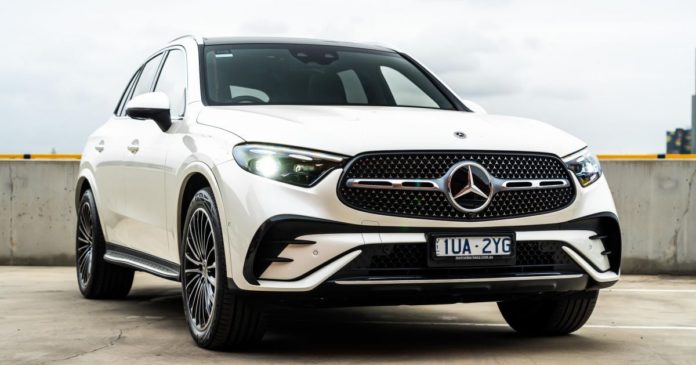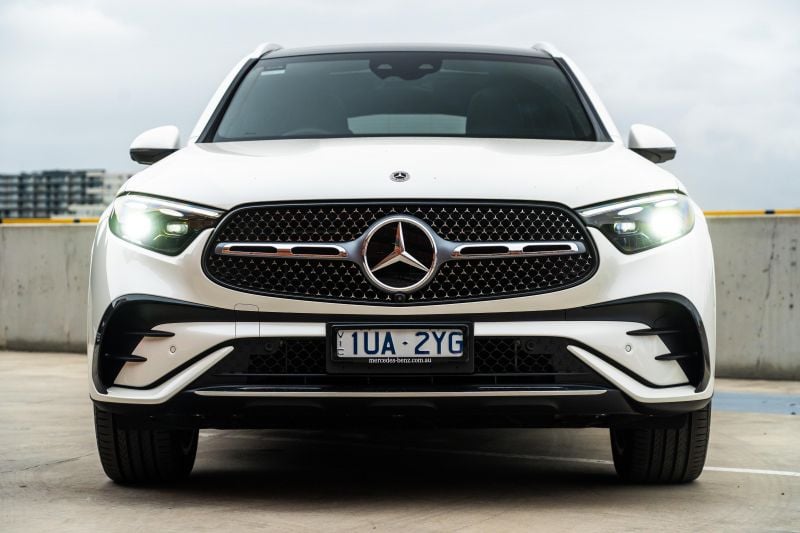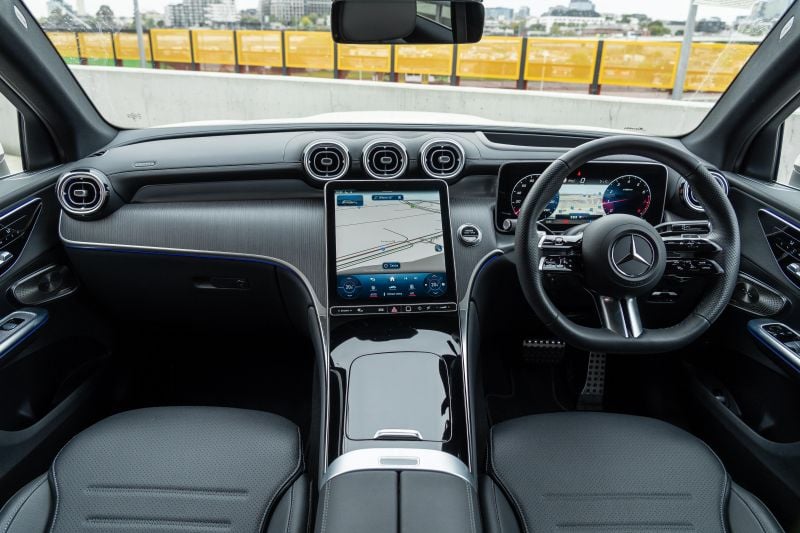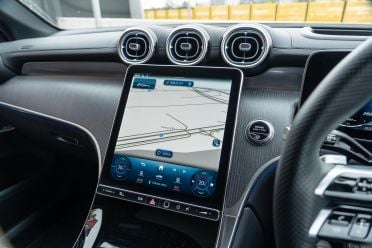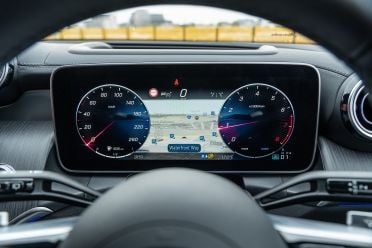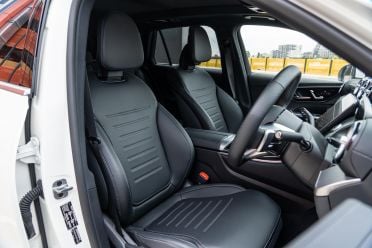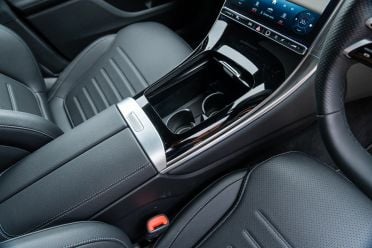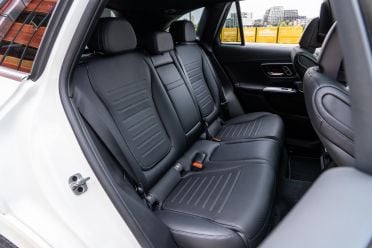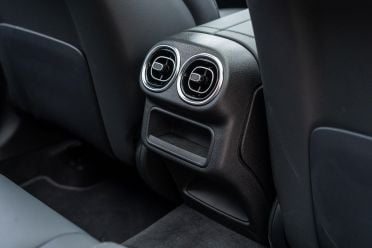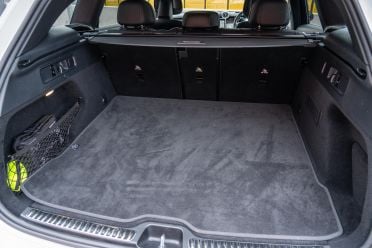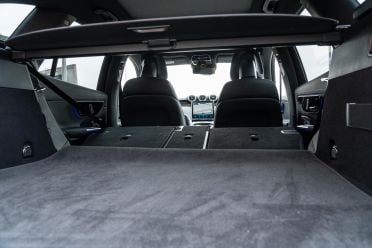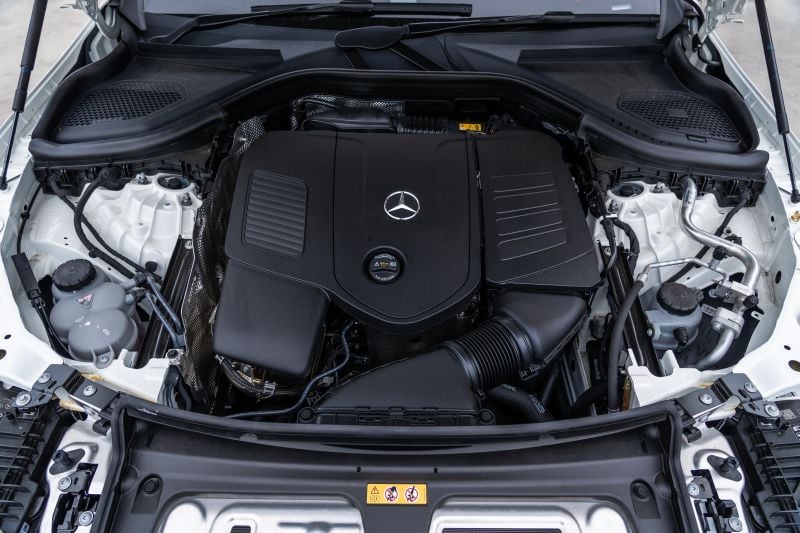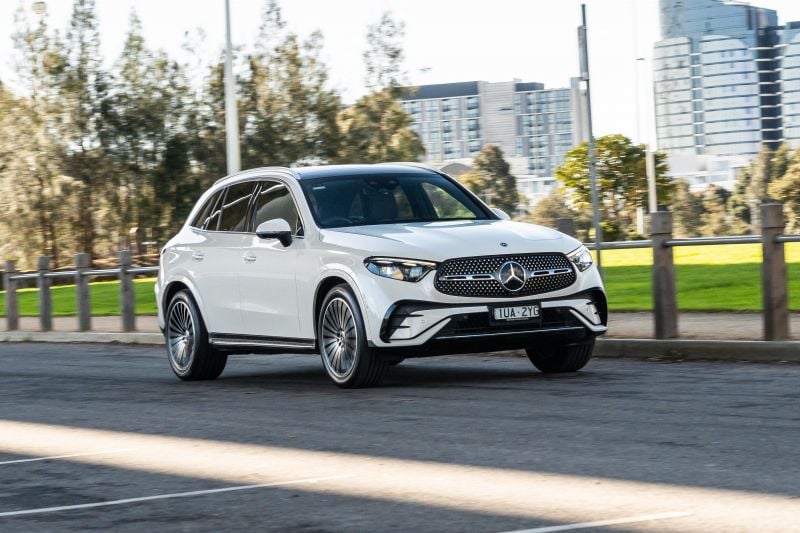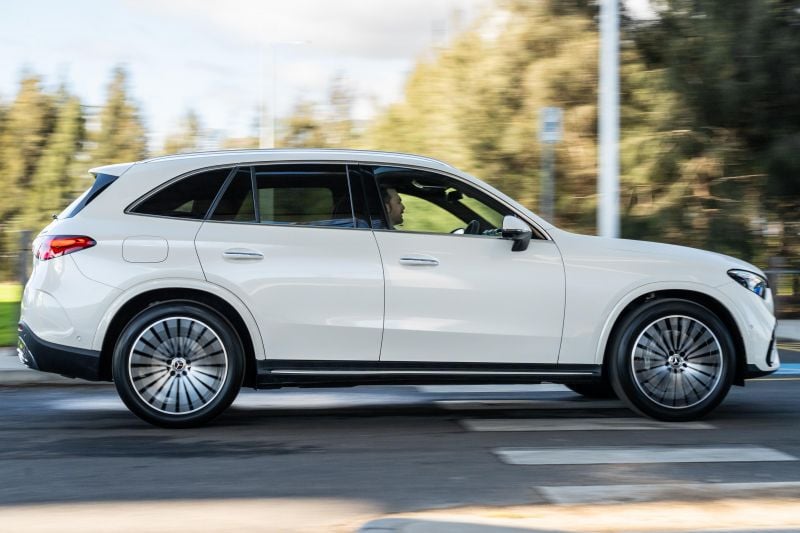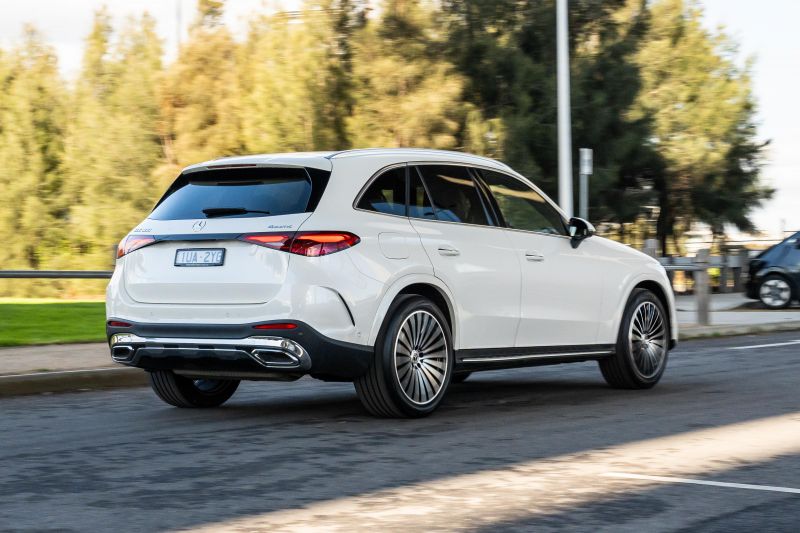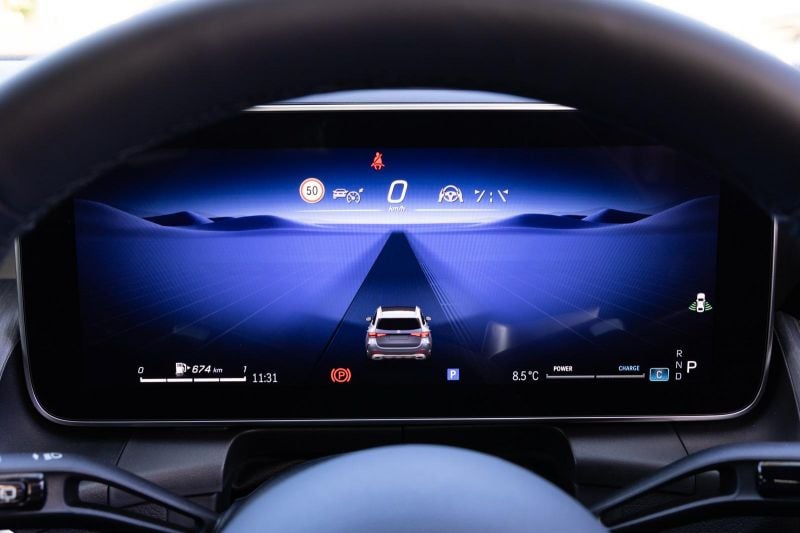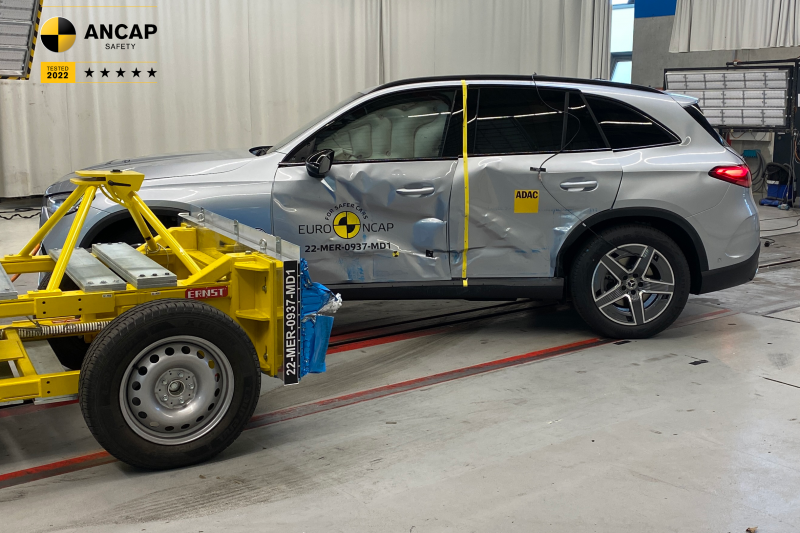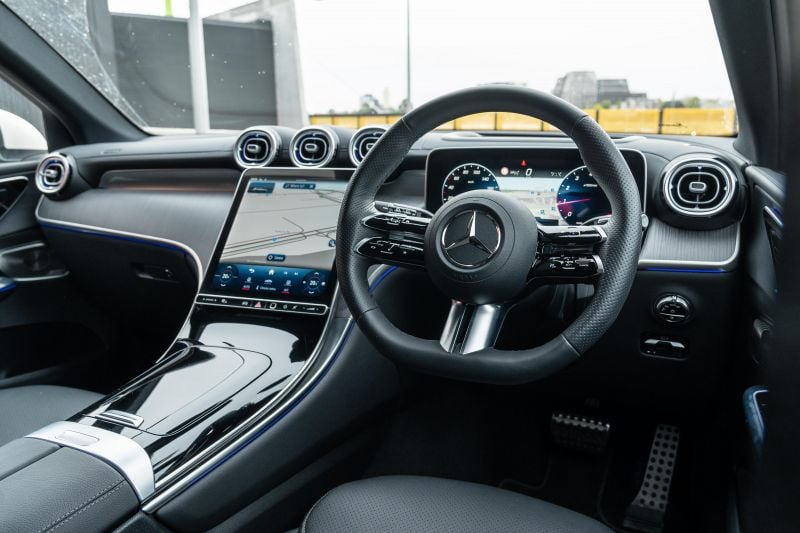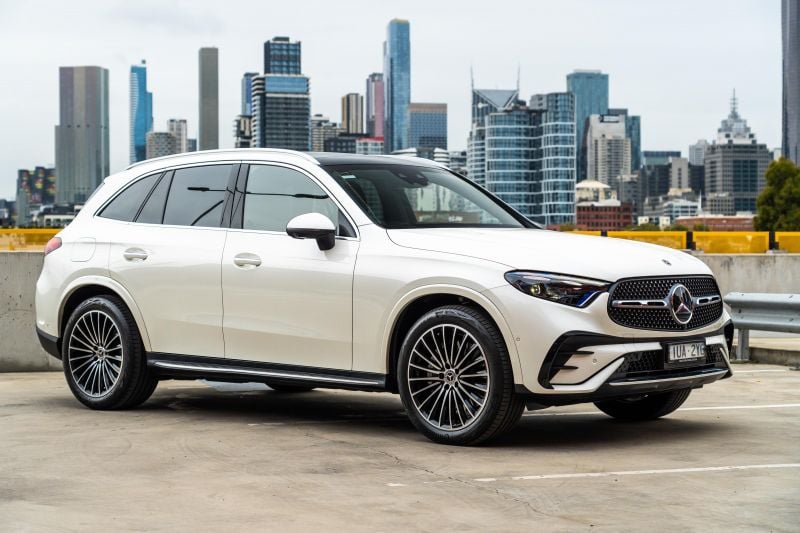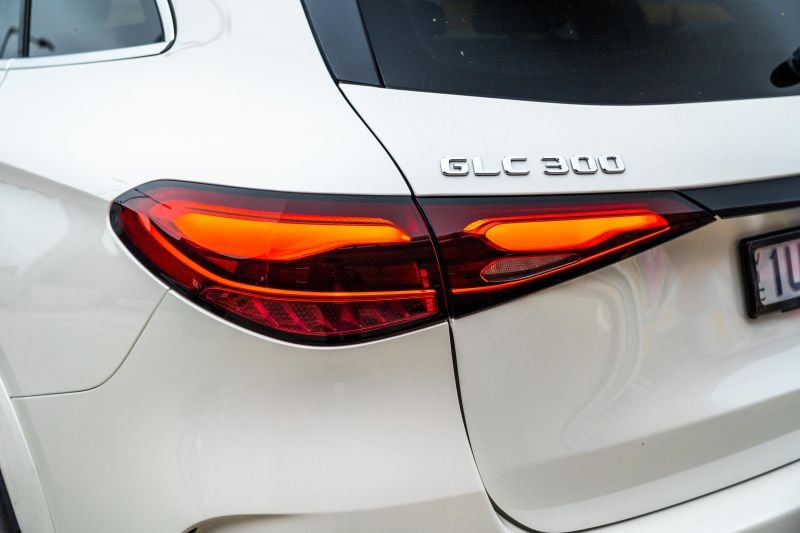Mercedes-Benz is cutting the fat.
Globally, it’s removing slower-selling, lower-profit models from its lineup.
In Australia, it’s cutting back on the number of variants it offers across the board – even the best-selling GLC SUV has lost its entry-level petrol engine option, along with the pair of diesels that were once available in local showrooms.
That leaves just the 2024 Mercedes-Benz GLC 300. It’s not short on showroom appeal, riding on AMG Line wheels and packing more three-pointed stars lathered in matte silver than you can poke a stick at. Just check out that grille.
That’s before you open the door and catch a glimpse of the enormous central screen, the expensive looking air vents, and the disco mood lighting. Then again, it’d want to look and feel pretty special.
With a starting price north of $100,000 before on-road costs, it has some heavy lifting to do in the face of strong competition from the likes of BMW and Audi, along with Lexus, Genesis, and even Mazda, in a corner of the car world that’s hotly contested.
How does the Mercedes-Benz GLC-Class compare?
View a detailed breakdown of the Mercedes-Benz GLC-Class against similarly sized vehicles.

Mercedes-Benz
GLC
How much does the Mercedes-Benz GLC-Class cost?
Mercedes-Benz doesn’t offer the same range of options as its main rivals in Australia, with just two variants – both with a four-cylinder petrol engine. The difference? One is a wagon, one has a coupe roofline.
| Model Variant | $RRP |
|---|---|
| 2024 Mercedes-Benz GLC 300 4Matic | $103,370 |
| 2024 Mercedes-Benz GLC 300 4Matic Coupe | $113,900 |
Prices exclude on-road costs
To see how the GLC compares with its rivals, check out our comparison tool.
What is the Mercedes-Benz GLC-Class like on the inside?
Mercedes-Benz does showroom appeal better than most, and the GLC is no exception.
Drop into the generously padded driver’s seat and you’re greeted with two high-resolution displays, neither of which would be out of place on your wall at home. The steering wheel has a chubby rim that feels great in your hands, and you get a commanding view of the road ahead… but there are some problems.
At 6’7 I realise I’m not what you’d call normal height. But I wasn’t able to get properly comfortable behind the wheel in the GLC, and wasn’t able to get the side mirrors into a position that showed close to enough of the lanes either side of the car.
It’s not an issue I’ve had in any other modern car – not to nearly the same extent – and just isn’t good enough in a $100,000 luxury SUV from a brand with the tagline ‘The Best or Nothing’.
At least the technology is sharp. The first iterations of MBUX, which is the name Mercedes-Benz gives its in-car technology suite, were a bit too fiddly – that’s not the case anymore.
With so much screen real estate to play with, there’s room for all the major functions to sit within easy reach so you don’t need to go digging through menus to change the temperature or fan speed. Mercedes-Benz calls it Zero Layer, and for the most part it works.
Some functions like the driver assist systems are buried deep within, but you’re able to create shortcuts to those features if you use them regularly.
You’re able to interact with the system using touch, or using natural voice commands (Hey Mercedes, I’m cold), or using the fiddly touchpad on the left-hand spoke of the steering wheel.
Wireless Apple CarPlay looks brilliant on the big screen, and connected reliably throughout our week with the car.
Music sounds excellent on the standard Burmester sound system, with punchy bass and impressive clarity when you crank up the volume.
There are two USB-C ports up front, along with a wireless phone charger tucked away under the dashboard. Storage spaces abound, from the open area with cupholders on the transmission tunnel, to the open door bins and decent central bin.
We’ve criticised previous GLC test cars for their sub-par build quality, from creaky door trims to a jammed lid on the cupholders.
This car had no such issues, and felt tightly screwed together. The awkward seat controls, abundance of gloss black trim, and plasticky air vents don’t exactly scream quality, but that’s a common complaint across the Mercedes-Benz range in 2024.
Down back, the GLC is on the more spacious end of its class.
The rear doors have a reasonably big aperture, making it easy to load or unload kids from child seats, and once you’re in there’s enough legroom to sit adults behind adults without too much trouble. Headroom is acceptable, but the panoramic sunroof and stylish roofline mean tall passengers will feel a bit cramped in a way they won’t in a BMW X3.
The staggered side-step design means longer-legged adults don’t need to awkwardly step over and in, but kids have a solid footing from which to clamber in. The middle seat has a fairly significant hump on it, meaning it’s best reserved for smaller people on short trips.
The air vents, USB-C ports, and fold-down central armrest are welcome inclusions if you’re carrying kids around, and there’s plenty of light in the back for carsick travellers. A trio of top tether points feature for child seats, along with ISOFIX points on the outboard rear seats.
Boot space is a claimed 620 litres, expanding to 1680 litres with the second row folded flat. That claim is class leading, and the load space itself is broad and flat, with a bootlid opens higher than in its rivals.
You’ll need to be careful in underground garages, but it means tall owners can walk right up to the loading lip without worrying about a concussion. Under the floor is a space saver spare tyre.
What’s under the bonnet?
There’s no diesel engine in the Australian GLC range, nor a six-cylinder option.
| GLC 300 4MATIC | |
|---|---|
| Engine | 2.0L 4cyl turbo 48V MHEV |
| Power | 190kW |
| Torque | 400Nm |
| Transmission | 9-speed automatic |
| Driven Wheels | All-wheel drive |
| Weight | 1970kg (tare) |
| Fuel economy (claimed) | 7.7L/100km |
| Fuel economy (as tested) | 8.5L/100km |
| Fuel tank | 62L |
| Octane rating | 95 RON |
How does the Mercedes-Benz GLC-Class drive?
Prod the start button, and the four-cylinder engine fires to life with a subtle growl.
It’s generally very quiet, humming along in the background with the nine-speed automatic shuffling through its closely-stacked ratios to keep the engine in its torque band.
The steering is light and direct, there’s plenty of punch when you gently lean on the accelerator, and the ride quality is generally good, making this an easy car to drive in the city.
There’s a few layers of insulation on every piece of feedback that makes for a plush, polished feeling.
Occasionally a sharp hit like a pothole or particularly nasty speed bump can really thud into the cabin, as is usually the case in cars riding on big wheels wrapped in sporty, low-profile tyres.
Really put your foot down and you can ruin the serenity. The four-cylinder engine sounds a bit awkward and diesel-ish at certain speeds, and the way it revs out to the redline can feel strained in the lower gears. Will the average owner care? Probably not.
There’s no excuse for scraped wheels or bumpers in town thanks to the suite of high-resolution cameras and sensors around the car.
At lower speeds you automatically get a clear picture of what’s going on around the car, and at the traffic lights it uses the front-facing camera behind the windscreen to show the traffic lights. It’s not always useful, but it does come in handy at times.
It’s impressively settled at higher speeds, too. There’s enough torque on tap to get you up to 100km/h without too much fuss, and at those speeds it drops into ninth gear and ticks over barely above idle.
There’s a languid feeling to the way it rides on the highway, floating nicely over rugged Australian country roads.
Big crests and dips are soaked up in one neat movement, and there’s very little in the way of road or engine noise in the cabin.
Coarse chip surfaces make for a bit of background static, but it’s far from overwhelming.
It’s all very Mercedes-Benz, although it’s hard to argue with the fact a big diesel engine would make the new GLC a more accomplished cruiser again.
In typical Mercedes-Benz fashion, all the active driver assists are excellent.
Adaptive cruise control smartly maintains a gap to the car in front, a the lane-keeping assist is among the most intuitive on the market.
It’s abundantly clear it’s there for you, decisively nudging the steering wheel when you stray towards the white lines.
In concert, they make this an incredibly low-stress car to drive long distances. Mercedes-Benz also gets credit for having capacitive sensors all the way around the wheel so a light touch is enough.
What do you get?
There’s a long list of standard inclusions in the GLC 300, but you can still find a way to spend more with a few choice options.
GLC 300 4Matic highlights:
- 20-inch alloy wheels
- AMG Line exterior
- Panoramic glass sunroof
- Aluminium-look running boards
- Coloured wheel arch liners
- Power tailgate
- 11.9-inch MBUX touchscreen infotainment system
- Wireless Apple CarPlay, Android Auto
- Satellite navigation
- Fingerprint scanner
- Head-up display
- Wireless charger
- Off-Road driving mode with transparent bonnet view
- AMG Line interior
- Woodgrain dashboard trim
- Piano black centre console
- Artico upper dash
- Artico door linings
- Artico upholstery
- Powered front seats incl. memory
- Heated front seats
Plus Package ($6900) adds:
- Digital Light headlights
- Adaptive Highbeam Assist Plus
- Heat- and noise insulating acoustic glass
- Burmester 3D surround sound system
- Augmented reality navigation
- Guard 360 vehicle protection plus
Mercedes-Benz also says it includes “additional driving assistance systems”.
Is the Mercedes-Benz GLC-Class safe?
The Mercedes-Benz GLC SUV earned a five-star ANCAP safety rating earlier this year against the 2020-2022 testing protocols – this Euro NCAP-derived rating doesn’t include the Coupe body style, however.
Standard safety equipment includes:
- Adaptive cruise control
- Autonomous emergency braking (AEB)
- Blind-spot assist
- Lane keep assist
- Parking sensors front, rear
- Rear cross-traffic assist
- Semi-autonomous parking assist
- Speed sign recognition
- 360-degree cameras
- Tyre pressure monitoring
How much does the Mercedes-Benz GLC-Class cost to run?
Mercedes-Benz was the first luxury brand in Australia to move to a five-year, unlimited-kilometre warranty.
| Warranty | 5 years, unlimited kilometres |
|---|---|
| Service intervals | 12 months, 25,000km |
| 3yr service plan | $3100 |
| 4yr service plan | $4200 |
| 5yr service plan | $6455 |
CarExpert’s Take
The GLC 300 is an impressive luxury SUV, but it’s not quite impressive enough to get away with its price tag.
With just one variant on offer, it really needs to be a standout on all fronts.
It has the flashiest, most luxurious interior of any rival – it makes the X3 and Q5 feel old behind the wheel, which they really are at this point.
It’s also polished on the road, even if the lack of a diesel option for drivers spending a long time on the open road is a shame.
But… there are some flaws present in the GLC that really shouldn’t be. Given its price the flashy cabin feels cheap in some places, and the fact there are still options packages really is disappointing.
Click the images for the full gallery
MORE: Buy a Mercedes-Benz GLC
MORE: Everything Mercedes-Benz GLC

